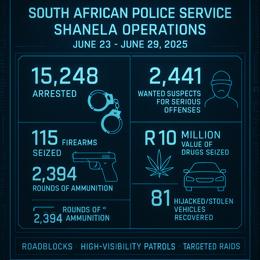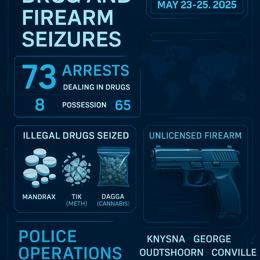Image created by AI
South Africa’s NPA Enlists Private Sector Experts to Combat Grey Listing, Boost Forensic Capabilities
The National Prosecuting Authority (NPA) of South Africa is engaging private sector specialists to enhance its forensic capabilities in the fight against complex financial crimes. This strategic partnership aims to address the requirements set by the Financial Action Task Force (FATF), with a deadline looming to remove South Africa from the grey list, a classification that implies increased monitoring due to perceived deficiencies in anti-money laundering and counter-terrorist financing infrastructure.
According to Deputy National Director of Public Prosecutions, Anton du Plessis, experts will provide necessary assistance in 20 high-priority cases, thereby augmenting the skills of the Directorate for Priority Crime Investigations (the Hawks). This collaboration is not an outsourcing of government functions but a much-needed infusion of specialized talent to help law enforcement keep pace with sophisticated and evolving criminal threats.
Du Plessis emphasized that the focus is on a rapid and focused response to meet the FATF's 22-item action plan before the January deadline. Integral to this endeavor is the prosecution of complex money-laundering and terrorist-financing cases. By drawing private sector expertise, the NPA also aims to boost digital analysis within the Investigating Directorate, an entity initially established following the Zondo inquiry into state capture and now a permanent prosecutorial unit.
The plan also involves setting up a special digital evidence unit, staffed with local and international experts. This initiative will be governed autonomously, preserving the NPA’s independence, and ensuring transparency and impartiality. This development follows setbacks in some state capture cases, including the high-profile case against former Eskom CEO Matshela Koko, highlighting the urgency of enhancing digital forensic capacity.
Additionally, the presidency, along with Business for SA (B4SA), has indicated progress in the public-private collaboration, especially in the energy sector. These partnerships have led to improved electrical grid recovery and increased private solar generation. Challenges remain, which will require concerted effort and significant investment in the coming years. The National Energy Crisis Committee is set to focus on transmission, market reforms, and new energy generation.
With the potential implications of the FATF grey listing on South Africa’s economy, these interventions come at a crucial time. It's a multidimensional approach designed to navigate the intricacies of contemporary financial crime, bolster the country's international reputation, and pave the way for a more resilient economy supported by robust legal and forensic frameworks.










